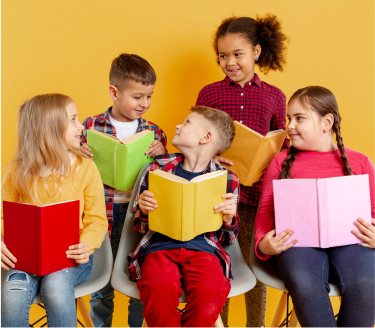

In a world where screens often light up our days more than the sun does, it’s super important we chat about the magic of active play for kids. Active play is way more than just fun and games—it’s essential for the physical, emotional, and cognitive growth of young ones. It gets kids moving and thinking in vibrant, energetic ways, helping build those key skills they really need as they grow. This isn’t just play; it’s about creating a well-rounded approach to learning that supports all the different parts of a child’s development. So, let’s remember, amidst all the tech and gadgets, good old-fashioned active play remains a crucial slice of childhood!
Physical activity is essential for children’s development. It goes beyond mere play; it’s a vital building block for overall growth. When children engage in physical activities like running, jumping, and dancing, they’re not just burning energy. These activities help develop muscle strength and coordination. Moreover, they enhance children’s agility, balance, and reaction times—all key aspects of physical development. Additionally, making physical activity a regular part of children’s lives can lay the groundwork for a healthy lifestyle that continues into adulthood.
Active play also plays a pivotal role in enhancing cognitive functions in children. When kids take part in physical activities that involve movement and coordination, they process information more swiftly and with greater accuracy. Activities that require following directions or sequences, for example, not only improve memory but also enhance problem-solving skills. Such activities prompt children to think quickly and make decisions, fostering critical decision-making abilities as they deal with games and physical challenges. By regularly engaging in these dynamic activities, children sharpen their cognitive abilities, which are crucial for their academic learning and everyday problem-solving.
The benefits of active play extend beyond physical and cognitive development; they also impact children’s emotional and social skills. Through play, children learn to express themselves, cope with their emotions, and navigate social interactions. Activities that involve other children teach them how to cooperate, take turns, and resolve conflicts, which are essential social skills.
Active play also promotes creativity and imagination. When children are given the freedom to run, jump, and dance, they often create their own games and narratives, which enhances their creative thinking abilities. This type of play allows them to express their thoughts and feelings in a safe and supportive environment, nurturing their creative talents.
Active play is essential to childhood, providing a host of benefits that support a child’s overall development. It fosters physical growth, sharpens cognitive abilities, nurtures emotional well-being, and enhances social skills. For parents keen on promoting active play at home, selecting resources that blend physical activities with learning and enjoyment is highly advantageous. A book like “Tavi Snoops the Ski Stadium” by G.C. Talan serves as a perfect example. It merges engaging storytelling with lively play, encouraging children to jump, stretch, and giggle as they follow the escapades of a lively dog. This book is an ideal choice for parents who want to enrich their children’s playtime with creative and interactive experiences.